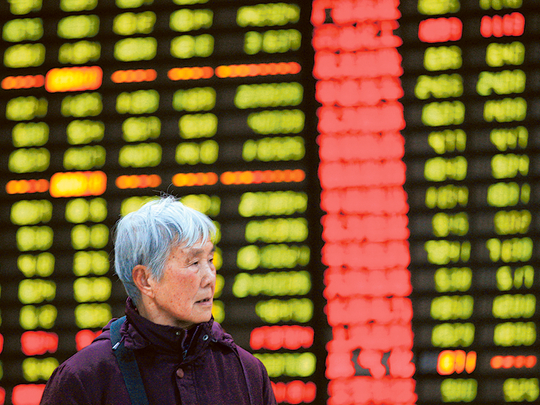
Global equity markets have been volatile in 2016, with slumps in January-February and June followed by significant rebounds. These fluctuations have contributed to a more cautious sentiment among investors. Fund manger cash holdings are at cyclical highs and inflows to Asian markets remain negative year-to-date, albeit showing some signs of improvement in September and October.
Among global equities, we continue to prefer Asia ex-Japan but acknowledge that dollar strength, if it continues, is a real threat to this view. While new uncertainties have emerged in countries such as Thailand and Korea, these are outweighed by potential positive developments in China, as well as in India and Indonesia, our two most preferred markets in Asia.
Investors are reassessing the outlook for US assets post the victory of Donald Trump in the recent Presidential election. Nevertheless, optimism over the impact of a potential fiscal stimulus needs to be balanced with the implications for inflation from easier fiscal policy at a time when spare capacity in the economy is limited.
Focusing on Asia, recent developments in China have the potential to result in a reassessment of the risks to equity markets in the region. Specifically, we believe China’s banks, which have been a perennial concern for investors, have in recent quarters started to address their non-performing loan problems via debt-for-equity swaps.
MSCI indices
China is also on scheduled to launch in December the Shenzhen — Hong Kong stock Connect, which will give investors access to Mainland-listed high-growth technology companies. 2017 may also see China admitted to MSCI indices, which are closely followed by fund managers in deciding where to invest. This could result in increased inflows to China.
Within China we prefer new economy and infrastructure stocks. The former is benefiting from the growth in the e-commerce and the latter gives investors direct exposure to the selective recovery in investment. We are becoming incrementally more positive towards Chinese banks given the restructuring of their non-performing loans.
Focusing on developed markets, we believe the US economy is in a late business-cycle environment, which tends to feature declining margins. While margins have been under pressure for some time, they are positively correlated with inflation. As inflation expectations have recently started to increase, this could provide an unexpected late cycle boost to corporate margins in the US.
On average, US corporate earnings are forecast to recover in 2017, driven by an improvement in the energy sector. President elect Trump may also be providing a boost to corporate earnings if he follows through on his pre-election promise of a fiscal stimulus.
Expectations of such a fiscal stimulus has led to a pick up in inflation expectations, which in turn is pushing interest rate forecasts higher, which is positive for bank earnings. Prior to the November election, banks were one of the worst performing sector. However, post-election, investors have started to accumulate bank stocks on an expected improvement in bank earnings.
Domestic consumption
Fiscal easing in the US could extend the business cycle. Thus, one of our preferred themes in equities, especially in the US, is domestic consumption. Domestic consumption is more defensive relative to its peer — global consumption — which tends to be more cyclical. Our preference for this theme complements our more cautious stance towards global equities and represents an opportunity for investors to focus on a broad-based multi-year theme.
The outlook for euro area equities remains challenging. The forecast recovery in 2017 earnings is concentrated in the banking sector. As the results of the bank stress tests over summer highlighted, this is a sector where any recovery is built on shallow foundations.
In the UK, we are positive on stocks that are beneficiaries of GBP Weakness. Specifically those with significant amount of earnings derived outside the UK, including blue-chip names with stable assets and solid dividend yields. While GBP remains weak, it is undervalued and current levels could represent a good opportunity for long-term investors and those with future GBP liabilities to accumulate.
Fluctuations
Looking ahead, potential risks include the Italian constitutional referendum and FOMC meeting in December. As a rate hike by the Fed in December is widely expected, the actual event should not result in significant fluctuations in market, but the risk remains. The outcome of the Italian referendum, or “Rexit”, based on the vow of Italian Prime Minister Matteo Renzi to leave office if he loses the vote, remains uncertain.
Summing up, although equity markets could post positive returns over the remainder of the year, we believe this will be accompanied by greater and higher-frequency fluctuations in markets. Given the uncertain environment, we believe it is better to accept lower returns with lesser fluctuations — hence our preference for multi-asset income strategies. Investors willing to take on more risk in the search for higher returns should consider our preferred equity markets Asia ex-Japan, India, Indonesia and ‘domestic consumption’ themes.
Clive McDonnell, Head of Equity Strategy, Standard Chartered Private Bank







